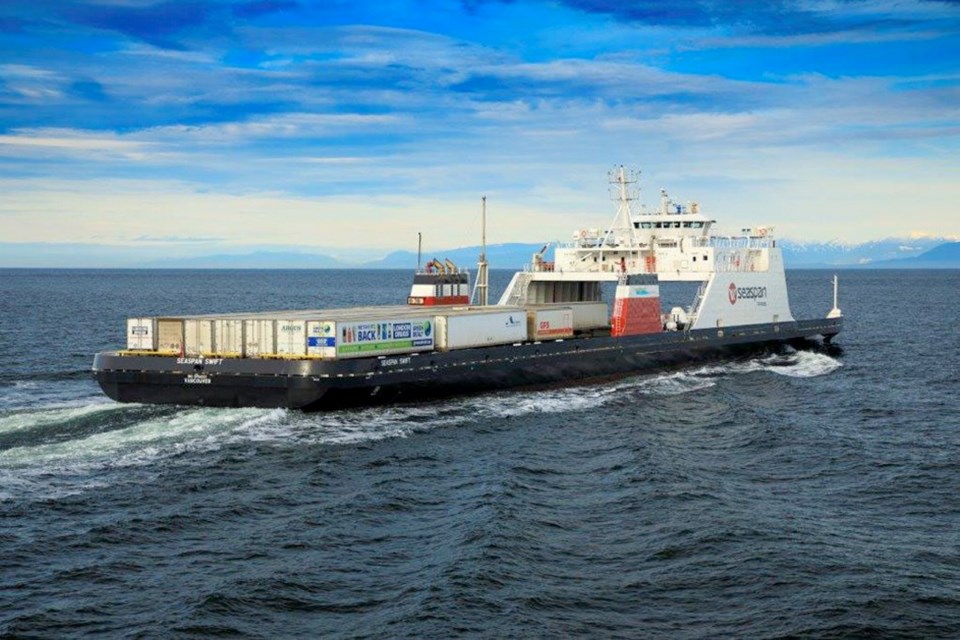The next apple you eat or the next new car you drive may well have arrived on Vancouver Island on a new dual-fuel ferry built in Turkey for Seaspan Ferry Corp.
More than half the cargo delivered to the Island arrives here on one of Seaspan’s six ferries sailing out of terminals in Delta and Surrey, the company said.
“We are a pretty significant player in providing goods and services to the Island,” Steve Roth, president of Seaspan Ferry Corp., said Thursday.
The new Seaspan Swift and Seaspan Reliant, each 488 feet long, will help meet demand for more capacity, Roth said.
“It ramps up our capacity. That’s really been our challenge. We have been limited by our vessels because of their age and size.”
Seaspan ferries carrying drop-trailers filled with cargo and new vehicles make 11 round trips per day, each one-way trip taking three hours, he said.
“They are full over and full back,” Roth said.
Ferries leave the Lower Mainland to arrive at either Swartz Bay or Nanaimo.
Seaspan prides itself on its reliable service. On April 7, for example, when B.C. Ferries cancelled sailings to and from the Lower Mainland because of rough weather, Seaspan ferries did not miss a run, Roth said.
Trucks haul trailers to the terminals. The trailers hold everything from groceries and electronics to lumber and automobiles.
In a drop-trailer service, trucks leave their trailers at the terminals and do not ride over on the ferries. Trailers are collected on the other side by trucks.
The two new ferries were commissioned on April 9 at the Tilbury Terminal off River Road in Delta. Ferries were formally christened by Premier Christy Clark and by Anisa White, who is married to Doug White III, a councillor and chief negotiator for the Snuneymuxw First Nation at Nanaimo.
Seaspan Ferry Corp. is part of North Vancouver-based Seaspan, a company that is building new non-combat vessels for Canada. Seaspan also owns Victoria Shipyards, along with Vancouver Shipyards and Vancouver Drydock.
Seaspan calls its new vessels “eco-ferries.” They were built to run on liquefied natural gas or diesel fuel, with a battery as a backup if needed. Roth said they will mainly use LNG.
B.C. Ferry Services has also turned to dual-fuel vessels, which significantly reduce the amount of carbon dioxide released into the environment. Its three Salish-class ships built in Poland run on natural gas, and LNG is planned for the two Spirit-class vessels.
Built in the Sedef Shipyard in Istanbul, Turkey, the Swift arrived in B.C. in December and started work in January, delivering to Swartz Bay. The Reliant arrived in late February and begins service in the coming week. Seaspan Ferries has a fleet of six vessels.
Seaspan Ferry Corp. is closing its Wellcox terminal in downtown Nanaimo to move operations to Duke Point. Upgrading and expanding the Duke Point terminal will allow the new ferries to use that facility once work is completed in May, Roth said.
The Reliant will run between Tilbury and Duke Point, but the new ferries are interchangeable, Roth said.
The new vessels are the first additions to Seaspan’s ferry fleet in 15 years.



